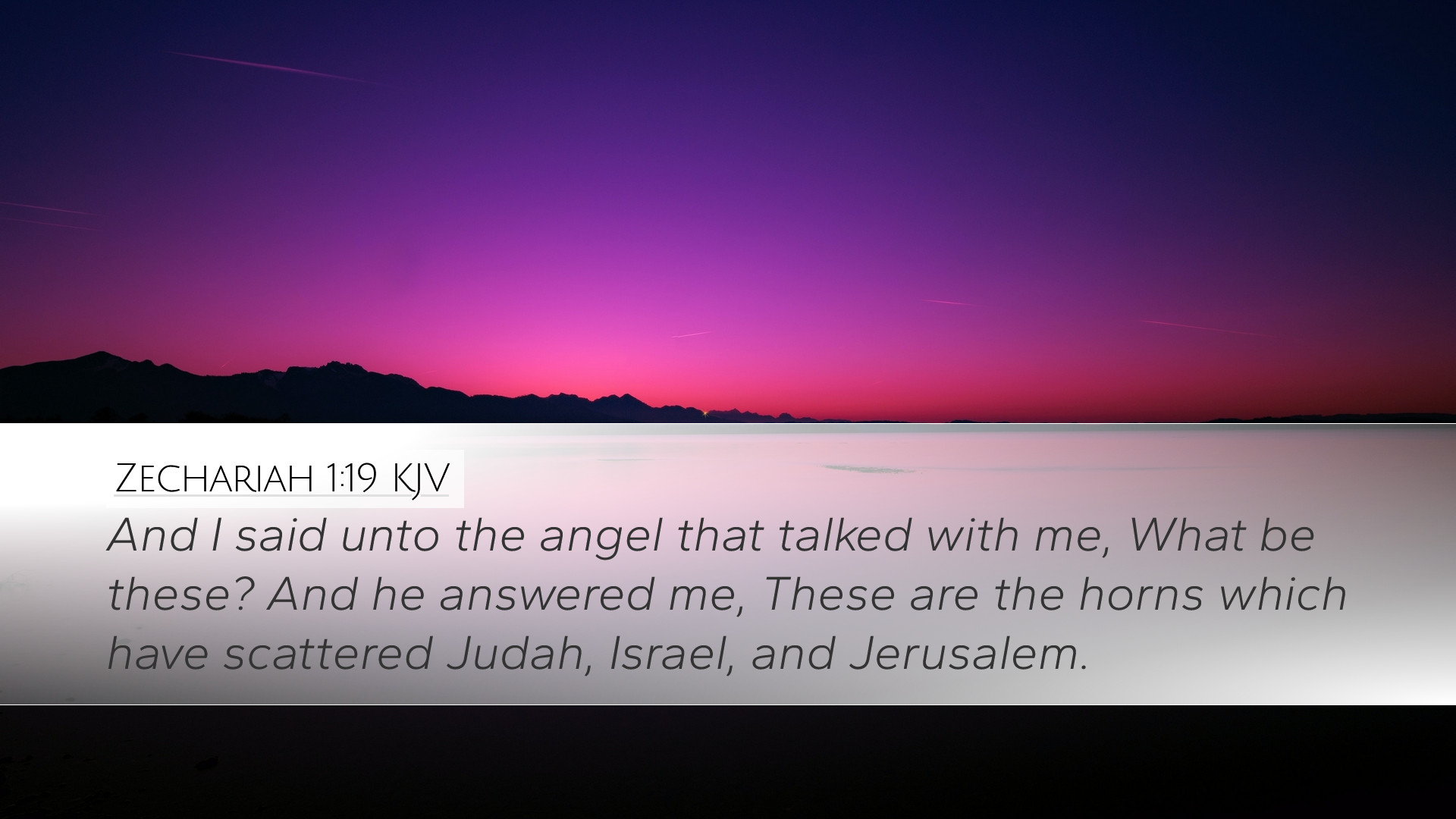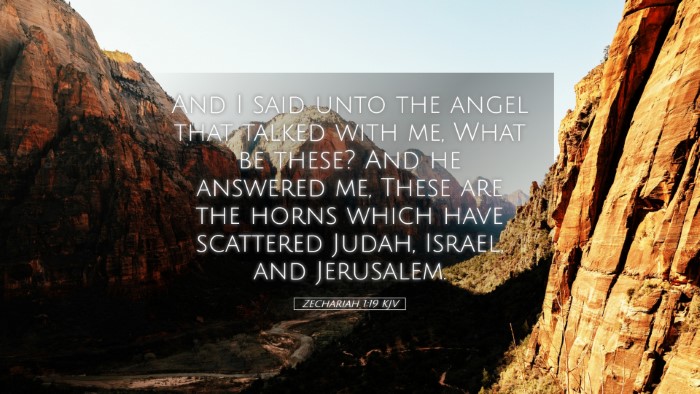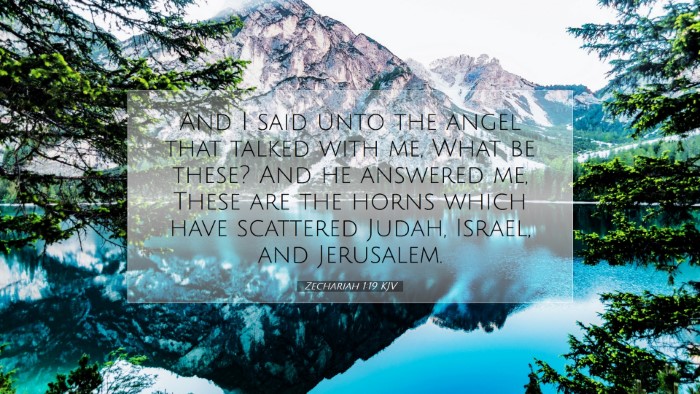Commentary on Zechariah 1:19
"And I said unto the angel that talked with me, What be these? And he answered me, These are the horns which have scattered Judah, Israel, and Jerusalem."
This verse marks a critical moment in Zechariah’s vision and serves to encapsulate the message of comfort and assurance that God is in control, despite the chaos represented by the “horns.” The imagery of horns is significant in biblical literature, representing power and strength, and often serves to denote hostile nations. The following analysis combines insights from respected public domain commentators to elucidate this passage further.
1. Context of the Prophecy
Matthew Henry: Henry notes that Zechariah’s prophetic ministry occurred after the Babylonian exile. The people of Israel had been scattered and needed to be reassured of God’s continued presence and eventual restoration. This passage symbolizes the political and spiritual turmoil that the people faced, emphasizing the opposition they encountered from various nations.
Albert Barnes: Barnes emphasizes the significance of the horns as a representation of the nations that were instruments of God’s judgment against Israel. The scattering of God's people was not merely a consequence of human actions but was also within the sovereign plan of God, highlighting His discipline and the ultimate purpose of restoration.
2. Analysis of the Horns
Adam Clarke: Clarke elaborates that the “horns” symbolize the powers that have risen against Israel. In the biblical context, horns signify authority, monarchy, and strength. The horns mentioned here—the powers that scattered the people—are thus representative of the destructive forces originating from the Assyrians and Babylonians. Clarke also connects this imagery to the idea of the horns being broken or removed, which symbolizes God's promise to defeat those powers.
- Scattering of Judah, Israel, and Jerusalem: This phrase denotes the complete and thorough devastation of God’s people, emphasizing the extensive impact of the horns’ power.
- Emphasis on restoration: The mention of the scattered people leads to the thought of restoration that follows in Zechariah’s prophecies, affirming that God has not forgotten His people.
3. The Role of the Angelic Messenger
Matthew Henry: Henry reflects on the role of the angel as a divine messenger who explains the visions to Zechariah. This highlights the importance of divine instruction and the clarity of God’s communication in times of uncertainty.
Albert Barnes: Barnes points out the angel's function in providing understanding of prophetic symbolism to the prophet. This exchange serves not only to clarify the situation concerning the people of Israel but also reinforces the involvement of the divine in their restoration.
4. Theological Implications
- Divine Sovereignty: The depiction of the horns emphasizes God's sovereignty over the nations. Even the enemies of Israel function within God’s plan, proving that He can use foreign powers for His purposes.
- Hope and Restoration: Implicit in this verse is the promise of hope. Despite the scattering and confusion, God’s plan is to gather and restore His people, an overarching theme in the book of Zechariah.
5. Application for Present-Day Believers
For contemporary audiences—pastors, students, theologians, and Bible scholars—this verse calls attention to the power structures in contemporary society that might appear overwhelming. It reminds them that, just as God was present with His people in their scattering, He is also present today.
- Understanding opposition: Christians might relate their struggles against societal and cultural "horns" with Zechariah’s vision, finding comfort and motivation in the context of divine oversight.
- Emphasis on unity: The scattering of Judah, Israel, and Jerusalem serves as a reminder for the Church today to remain unified and resilient against external pressures and divisions.
- Faith in divine restoration: As God restored Israel, believers are encouraged to maintain hope in God’s ongoing work in their lives and the community.
Conclusion
Zechariah 1:19 encapsulates a crucial reminder of God’s sovereignty amid conflict. The horns signify the powers that opposed Israel, but they also provide a foreshadowing of God’s restoration and promise. These commentaries—through the insights of Henry, Barnes, and Clarke—not only enhance our understanding of the text but also challenge believers to apply these timeless truths within their own spiritual journeys.


